We put the Oppo Find X5 Pro through our rigorous DXOMARK Camera test suite to measure its performance in photo, video, and zoom quality from an end-user perspective. This article breaks down how the device fared in a variety of tests and several common use cases and is intended to highlight the most important results of our testing with an extract of the captured data.
Overview
Key camera specifications:
- Primary: 50MP sensor, 80° field of view, f/1.7-aperture lens, OIS, AF
- Ultra-wide: 50MP sensor, 110° field of view, f/2.2-aperture lens, AF
- Tele 1: 13MP sensor, 45° field of view, f/2.4-aperture lens, AF
- 4K at 30/60fps, 1080p at 30/60fps (tested at 4K/30fps)
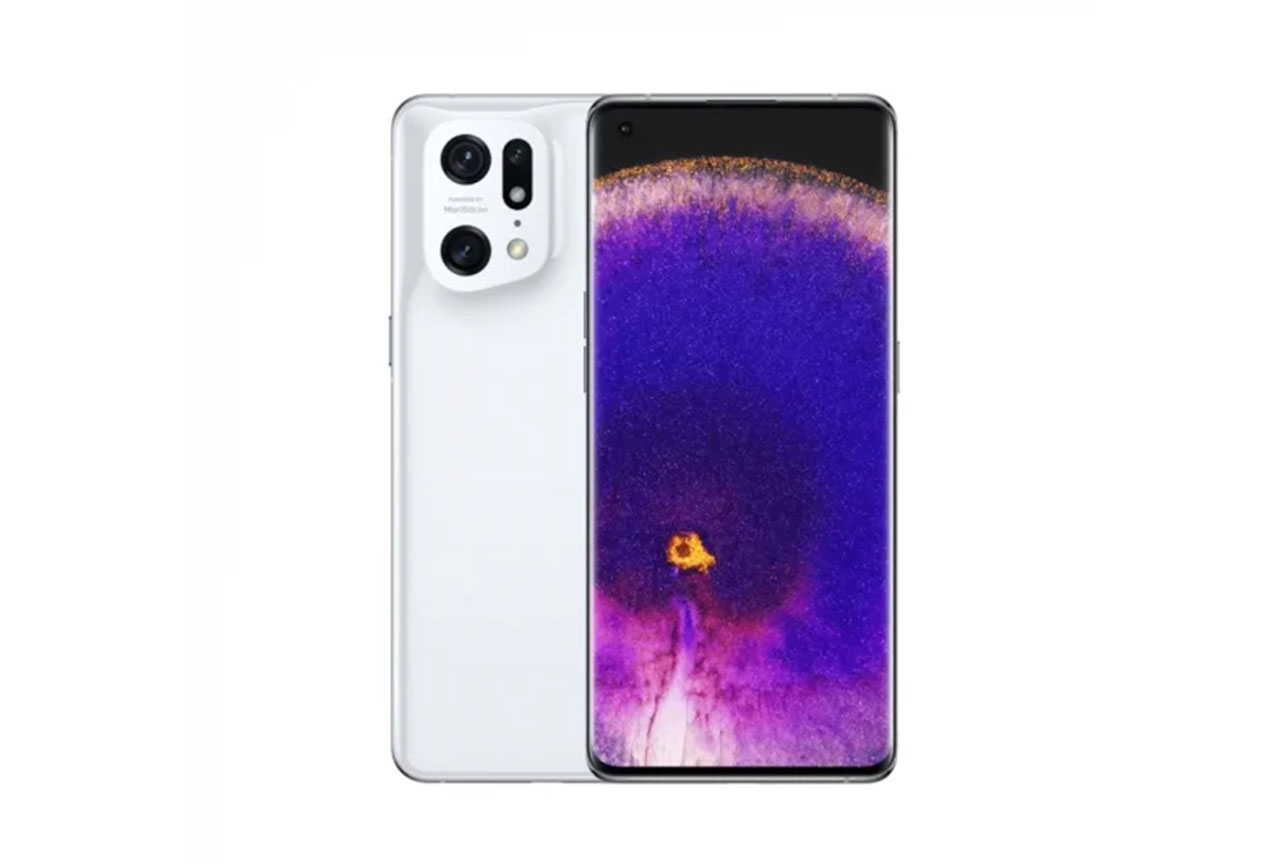
Oppo Find X5 Pro


 22nd
22nd 20th
20thPros
- Wide dynamic range in bright light and under indoor conditions
- Good detail for both photo and video
- Wide dynamic range and good detail on ultra-wide camera
- Good depth estimation in bokeh mode
- Fast and accurate video autofocus
- Effective video stabilization
In our testing, the Oppo Find X5 Pro achieves a mid-table position in the Ultra Premium segment and actually scores one point lower than its predecessor X3 Pro. Given that the newer device comes with a slightly bigger aperture and therefore a better light collection capability, this is a result we did not necessarily expect. Differences between the two devices are mainly noticeable in photo mode where the X5 Pro offers improved color rendering and a wider dynamic range but loses out in terms of autofocus performance and texture/noise trade-off.
The X5 Pro is more than capable of delivering nice images in most situations, but compared to many Ultra Premium rivals, it lacks some key features, such as zero shutter lag (for fast focus and capture), a reliable HDR algorithm (for a consistently wide dynamic range) or a dedicated camera for long range tele shots. Overall, smartphone photographers can find better alternatives in the Ultra Premium segment at a similar price point.
Test summary
About DXOMARK Camera tests: DXOMARK’s Camera evaluations take place in laboratories and in real-world situations using a wide variety of subjects. The scores rely on objective tests for which the results are calculated directly by measurement software on our laboratory setups, and on perceptual tests in which a sophisticated set of metrics allow a panel of image experts to compare aspects of image quality that require human judgment. Testing a smartphone involves a team of engineers and technicians for about a week. Photo, Zoom, and Video quality are scored separately and then combined into an Overall score for comparison among the cameras in different devices. For more information about the DXOMARK Camera protocol, click here. More details on smartphone camera scores are available here. The following section gathers key elements of DXOMARK’s exhaustive tests and analyses. Full performance evaluations are available upon request. Please contact us on how to receive a full report.
Photo
Oppo Find X5 Pro
153
For scoring and analysis, DXOMARK engineers capture and evaluate more than 2,600 test images both in controlled lab environments and in outdoor, indoor and low-light natural scenes, using the camera’s default settings. The photo protocol is designed to take into account the main use cases and is based on typical shooting scenarios, such as portraits, family, and landscape photography. The evaluation is performed by visually inspecting images against a reference of natural scenes, and by running objective measurements on images of charts captured in the lab under different lighting conditions from 1 to 1,000+ lux and color temperatures from 2,300K to 6,500K.
In photo mode, the primary camera does well overall while shooting in bright light or under typical indoor conditions. Images show good exposure and nice colors. A wide dynamic range ensures good detail in both the highlight and shadow regions of the frame. Textures are rendered well, but some noise can creep in in areas of plain color. The camera starts to struggle in more difficult high-contrast conditions where the HDR algorithm kicks in. In these conditions, our testers observed a multitude of image artifacts including tone compression, fusion artifacts and haloing. Another important drawback of the device, especially when compared to the predecessor Find X3 Pro, is its autofocus, which is often quite slow to react. As a consequence, there is a risk of missing the decisive moment.
In bokeh mode, the camera separates the subject well from the background, but some inaccuracies can be visible. The default focal length of 27mm is not ideal for shooting portraits as you have to get quite close to the subject for a frame-filling shot. Luckily, you can switch to the 2x lens for a longer and more suitable focal length.
When shooting at night, the camera is capable of producing nice flash portraits. However, the level of image detail drops quite dramatically when shooting with the flash deactivated. Dynamic range can also be an issue in night shots, with quite some inconsistency between scenes and highlight and/or shadow clipping as a result.
When shooting in high-contrast conditions, it’s important to keep in mind that the Oppo HDR processing is not applied to the preview image, which means the final result can look quite different from what you see on the display during capture.

Exposure
Oppo Find X5 Pro
111
Exposure and color are the key attributes for technically good pictures. For exposure, the main attribute evaluated is the brightness of the main subject through various use cases such as landscape, portrait, or still life. Other factors evaluated are the contrast and the dynamic range, eg. the ability to render visible details in both bright and dark areas of the image. Repeatability is also important, because it demonstrates the camera's ability to provide the same rendering when shooting several images of the same scene.



The Oppo Find X5 Pro delivers accurate target exposure and a wide dynamic range across all light levels and down to low light, giving it an advantage over some of its competitors. However, the wide dynamic range comes with some drawbacks. Our testers observed some contrast issues, such as tone compression in backlit scenes and dark skin tones can lack contrast, giving them a slightly washed out look.

Color
Oppo Find X5 Pro
107
Exposure and color are the key attributes for technically good pictures. For color, the image quality attributes analyzed are skin-tone rendering, white balance, color shading, and repeatability. For color and skin tone rendering, we penalize unnatural colors but we respect a manufacturer's choice of color signature.
In bright light and when shooting indoors, the Find X5 Pro delivers vivid and pleasant colors that are quite close to many competitors. Only the rendering of darker skin tones can occasionally be inaccurate, with a pinkish cast or slightly desaturated look. In low-light scenes that are illuminated by warm light sources, the Find X5 Pro produces a quite strong orange cast. On the predecessor X3 Pro, the effect is more pronounced, but the iPhone 13 Pro Max does noticeably better, conveying a pleasantly warm feel while maintaining overall accurate color rendering.

Autofocus
Oppo Find X5 Pro
109
Autofocus tests concentrate on focus accuracy, focus repeatability, shooting time delay, and depth of field. Shooting delay is the difference between the time the user presses the capture button and the time the image is actually taken. It includes focusing speed and the capability of the device to capture images at the right time, what is called 'zero shutter lag' capability. Even if a shallow depth of field can be pleasant for a single subject portrait or close-up shot, it can also be a problem in some specific conditions such as group portraits; Both situations are tested. Focus accuracy is also evaluated in all the real-life images taken, from infinity to close-up objects and in low light to outdoor conditions.
The Oppo’s autofocus system works generally effectively, locking onto the subject in all scenes. However, it can be a little slow. Unlike many of its Ultra Premium competitors, the Find X5 Pro does not come with zero shutter lag, which means it takes a touch longer to capture the image after the shutter button has been pressed by the user. There is therefore a higher risk of missing the decisive moment in moving scenes.
A slightly narrow depth of field means that background subjects tend to be slightly out of focus. In this scene, the X5 Pro produces good sharpness on the closest face, but the model further back is completely out of focus. In comparison, the Find X3 Pro offers a wider depth of field, thanks to its slightly smaller lens aperture.

Texture
Oppo Find X5 Pro
111
Texture tests analyze the level of details and the texture of subjects in the images taken in the lab as well as in real-life scenarios. For natural shots, particular attention is paid to the level of details in the bright and dark areas of the image. Objective measurements are performed on chart images taken in various lighting conditions from 1 to 1000 lux and different kinds of dynamic range conditions. The charts used are the proprietary DXOMARK chart (DMC) and the Dead Leaves chart.
The Oppo Find X5 Pro captures good detail in bright light and under typical indoor lighting, but, as expected, a loss of detail becomes more noticeable in low light. In our lab tests, the X5 Pro still does well against the iPhone 13 Pro Max, but our measurements also show that the Find X3 Pro preserves more detail than the newer model.

Noise
Oppo Find X5 Pro
102
Noise tests analyze various attributes of noise such as intensity, chromaticity, grain, structure on real-life images as well as images of charts taken in the lab. For natural images, particular attention is paid to the noise on faces, landscapes, but also on dark areas and high dynamic range conditions. Noise on moving objects is also evaluated on natural images. Objective measurements are performed on images of charts taken in various conditions from 1 to 1000 lux and different kinds of dynamic range conditions. The chart used is the Dead Leaves chart and the standardized measurement such as Visual Noise derived from ISO 15739.
Noise is generally well controlled across all conditions, even though lab measurements are slightly higher than on the predecessor X3 Pro. In comparison, the iPhone measures higher noise at all light levels.
In real life scenes, noise is well under control on faces but more noticeable in areas of plain color, especially in low light.

Artifacts
Oppo Find X5 Pro
77
The artifacts evaluation looks at lens shading, chromatic aberrations, geometrical distortion, edges ringing, halos, ghosting, quantization, unexpected color hue shifts, among others type of possible unnatural effects on photos. The more severe and the more frequent the artifact, the higher the point deduction on the score. The main artifacts observed and corresponding point loss are listed below.
Unwanted image artifacts are particularly visible when the camera’s HDR algorithm triggers in backlit scenes. In this kind of situation, our testers observed artifacts such as color quantization, ringing, haloing, and ghosting.

Preview
Oppo Find X5 Pro
80
Preview tests analyze the image quality of the camera app's preview of the image, with particular attention paid to the difference between the capture and the preview, especially regarding dynamic range and the application of the bokeh effect. Also evaluated is the smoothness of the exposure, color and focus adaptation when zooming from the minimal to the maximal zoom factor available. The preview frame rate is measured using the LED Universal Timer.
The Find X5 Pro does not apply any HDR processing to the preview image. As a result, what you get in the final capture can look quite a bit different from what you see in the preview on the device display.

Bokeh
Oppo Find X5 Pro
80
Bokeh is tested in one dedicated mode, usually portrait or aperture mode, and analyzed by visually inspecting all the images captured in the lab and in natural conditions. The goal is to reproduce portrait photography comparable to one taken with a DSLR and a wide aperture. The main image quality attributes paid attention to are depth estimation, artifacts, blur gradient, and the shape of the bokeh blur spotlights. Portrait image quality attributes (exposure, color, texture) are also taken into account.
In portrait mode, the X5 Pro captures good detail on the subject’s face, which is an improvement over the predecessor X3 Pro. Depth estimation is usually good, but some small errors can be visible around the foreground subject. By default, the X5 Pro uses the primary camera in this mode, and the 27mm focal length is not ideal for portraits. You have to get quite close to your subject for a frame-filling shot, and the wide-angle lens can cause a slightly distorted look on faces. Users have the option to switch to the 2x lens, though.
Zoom
Oppo Find X5 Pro
107
DXOMARK engineers capture and evaluate over 400 test images in controlled lab environments and in outdoor, indoor, and low-light natural scenes, using the camera’s default settings and pinch zoom at various zoom factors from ultra wide to very long-range zoom. The evaluation is performed by visually inspecting the images against a reference of natural scenes, and by running objective measurements of chart mages captured in the lab under different conditions from 20 to 1000 lux and color temperatures from 2300K to 6500K.
For zooming in and out, the Find X5 Pro is somewhat of a mixed bag. The ultra-wide camera does well, thanks to good target exposure and pleasant white balance. The 15mm equivalent focal length is similar to competitors in this class and allows you to squeeze a lot of scene into the frame. The level of captured detail is higher than on many competitors and a noticeable improvement over the predecessor.
For zooming into the distance in tele mode, the Find X5 Pro is not your best option, though. Both white balance and exposure are accurate in tele zoom images, but given that the Oppo only features a 2x tele lens, the level of detail is generally low, especially at medium and long-range tele settings. Image noise is noticeable in all shooting conditions. The Find X5 Pro comes with the same 2x tele as its predecessor X3 Pro, but many current competitors in the segment offer longer zoom lenses, for example, the iPhone 13 Pro Max with its 3x variant.

Wide
Oppo Find X5 Pro
58
These tests analyze the performance of the ultra-wide camera at several focal lengths from 12 mm to 20 mm. All image quality attributes are evaluated, with particular attention paid to such artifacts as chromatic aberrations, lens softness, and distortion. Pictures below are an extract of tested scenes.
The ultra-wide camera offers a large field of view and is capable of capturing images with accurate exposure and nice colors. In addition, detail is better than on the rivals, especially the background of the image. On the downside, noise is a little more noticeable in areas of plain color.

Tele
Oppo Find X5 Pro
140
All image quality attributes are evaluated at focal lengths from approximately 40 mm to 300 mm, with particular attention paid to texture and detail. The score is derived from a number of objective measurements in the lab and perceptual analysis of real-life images.
In the sample above you can see that the X5 Pro generally does well at close range tele. The exposure balance between subject and background is better than on the rivals, but there is a lack of detail on the subject’s face, and noise is noticeable as well. At close range, both Oppo cameras are doing better than the iPhone.
Things go slightly downhill at medium and long range, though, which is down to the Oppo’s limited optical zoom capabilities. The lack of detail becomes more noticeable, and dynamic range is more limited as well.
Video
Oppo Find X5 Pro
119
DXOMARK engineers capture and evaluate more than 2.5 hours of video in controlled lab environments and in natural low-light, indoor and outdoor scenes, using the camera’s default settings. The evaluation consists of visually inspecting natural videos taken in various conditions and running objective measurements on videos of charts recorded in the lab under different conditions from 1 to 1000 lux and color temperatures from 2300 to 6500K.
The Oppo Find X5 Pro is overall a good choice for mobile video shooters. Video footage is well exposed and offers nice colors in most conditions. In bright light and indoors, detail is good, and video noise pretty limited. An effective video stabilization system helps minimize camera shake and makes for smooth handheld footage. On the downside, video recordings can sometimes be underexposed in difficult backlit high-contrast scenes.

Exposure
Oppo Find X5 Pro
118
Exposure tests evaluate the brightness of the main subject and the dynamic range, eg. the ability to render visible details in both bright and dark areas of the image. Stability and temporal adaption of the exposure are also analyzed.
In video mode, the X5 Pro generally does well for exposure in bright light. Target exposure is accurate, and a fairly wide dynamic range ensures good highlight and shadow detail. In addition, exposure is fairly stable which is an improvement over the Find X3 Pro, which has a tendency to adapt exposure to changes in the scene slowly or unnecessarily.
High-contrast scenes, especially when backlit, can cause some issues, though. Like in the sample below, subjects can be underexposed. For this scene, both comparison devices offer an overall better rendering by sacrificing some highlight detail in the background and prioritizing subject exposure.

Color
Oppo Find X5 Pro
107
Image-quality color analysis looks at color rendering, skin-tone rendering, white balance, color shading, stability of the white balance and its adaption when light is changing.
When recording video in bright outdoor light or indoor scenes, the X5 Pro produces pleasantly vivid colors with a warm touch. In comparison, the Find X3 Pro is more neutral but both cameras produce good color.
When shooting in low light conditions warmer, but still pleasant, color casts become visible. Overall video color results are similar to the Find X3 Pro but not on the same level as the iPhone, which does a better job at controlling color casts while maintaining nicely saturated warm colors.

Texture
Oppo Find X5 Pro
99
Texture tests analyze the level of details and texture of the real-life videos as well as the videos of charts recorded in the lab. Natural videos recordings are visually evaluated, with particular attention paid to the level of details in the bright and areas as well as in the dark. Objective measurements are performed of images of charts taken in various conditions from 1 to 1000 lux. The charts used are the DXOMARK chart (DMC) and Dead Leaves chart.
Lab measurements for video detail are lower on the Find X5 Pro than for some competitors. This is also noticeable in real-life indoor and outdoor scenes where detail is softer than on the iPhone 13 Pro Max for example. As one would expect, in low light, detail levels drop but that’s also true for the competition. We also observed a slight loss of detail in difficult high-contrast scenes.

Noise
Oppo Find X5 Pro
105
Noise tests analyze various attributes of noise such as intensity, chromaticity, grain, structure, temporal aspects on real-life video recording as well as videos of charts taken in the lab. Natural videos are visually evaluated, with particular attention paid to the noise in the dark areas and high dynamic range conditions. Objective measurements are performed on the videos of charts recorded in various conditions from 1 to 1000 lux. The chart used is the DXOMARK visual noise chart.
Video noise is usually well under control in bright light and indoors but becomes more intrusive in low light. In this graph, we can see that measurements on the X5 Pro and X3 Pro are quite similar, with slightly higher noise levels on the newer device in low light and outdoors. The iPhone noise levels are the lowest across all light levels.

Stabilization
Oppo Find X5 Pro
103
Stabilization evaluation tests the ability of the device to stabilize footage thanks to software or hardware technologies such as OIS, EIS, or any others means. The evaluation looks at residual motion, smoothness, jellow artifacts and residual motion blur on walk and run use cases in various lighting conditions. The video below is an extract from one of the tested scenes.
The X5 Pro’s video stabilization is quite effective, making for pretty smooth footage, especially when running while recording. Overall performance is on a similar level as the competition in the Ultra Premium segment.

Artifacts
Oppo Find X5 Pro
85
Artifacts are evaluated with MTF and ringing measurements on the SFR chart in the lab as well as frame-rate measurements using the LED Universal Timer. Natural videos are visually evaluated by paying particular attention to artifacts such as aliasing, quantization, blocking, and hue shift, among others. The more severe and the more frequent the artifact, the higher the point deduction from the score. The main artifacts and corresponding point loss are listed below.
Video artifacts are generally well controlled on the Find X5 Pro, but some ghosting can be visible on occasions, particularly when the camera is panned while recording.


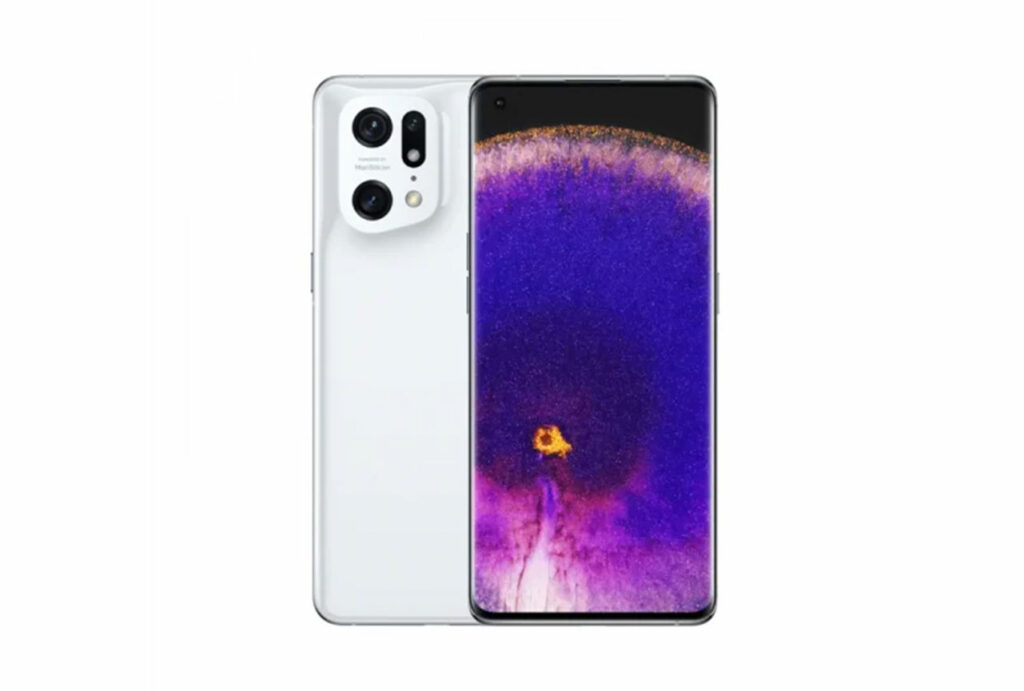





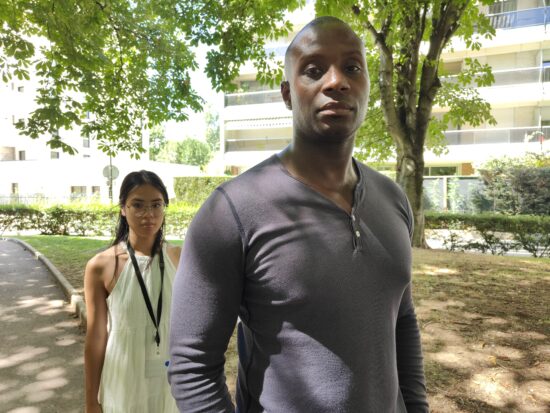




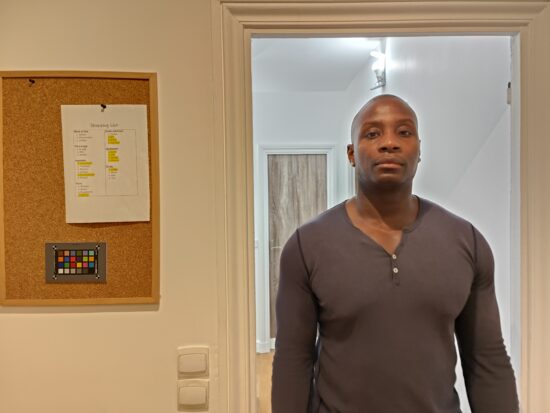
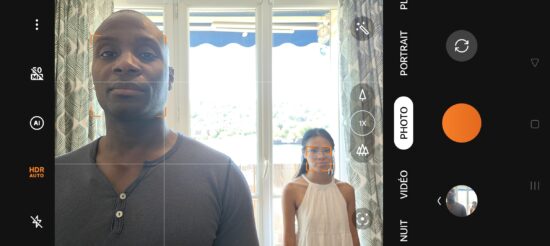




















DXOMARK encourages its readers to share comments on the articles. To read or post comments, Disqus cookies are required. Change your Cookies Preferences and read more about our Comment Policy.